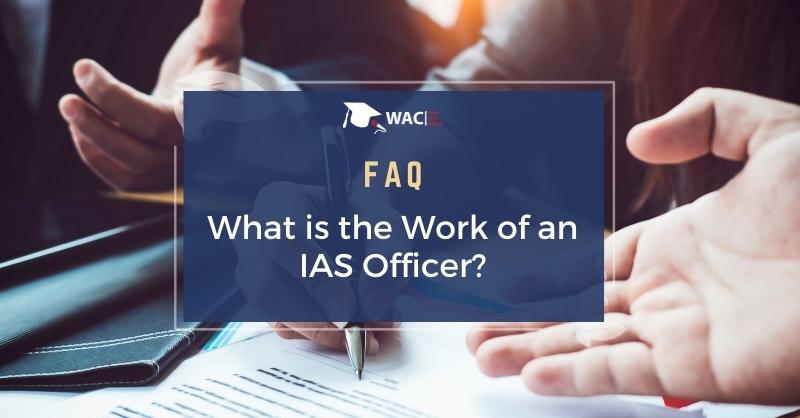An IAS officer can act as a Collector, Additional Collector and District Collector under various sections of the IPCC. IAS is one of the most prestigious government service in India. An aspirant in order to become an IAS officer, has to give UPSC civil service exam and secure a high rank.The IAS officers not only serve Government of India but also the individual states. They are also work stationed to government establishments such as, statutory bodies, auxiliary bodies, regulatory bodies, etc.
The work responsibilities of an IAS officer vary depending on the type of assignment he or she is assigned with.
An IAS Officer is Mainly Provided with three types of Assignments :-
- Field
- State secretariat/ public sector undertakings
- Central secretariat assignments
The task is to handle affairs of the government which involves drafting, framing, implementing and reviewing policies. An IAS officer work has to supervise the implementation of government schemes and policies. He/she is required to consult various departments and elect representatives. Further, He/she is also responsible for responding to natural calamities, riots and major accidents in their jurisdiction as well as responsible for coordinating relief activities.
• Administrative work
An IAS officer is an administrative officer in the civil services.He/she is accountable for supervising the administrative activities inside the assigned division.
• Management
An IAS officer work is responsible for the management of the staff working under him. He/she is responsible to make evaluation reports based on their services.
• Maintaining law and order
An IAS officer has responsibility in regard to maintenance of law and order. He/she is responsible for coordinating and providing necessary support in order to restore law and order and aid individuals who get affected by natural calamities or riots.
• Documentation
An IAS officer often stays occupied for the purpose of reviewing various reports. He/she is also responsible for providing aid and advice to the elected representatives for formulating and drafting policies and making the right decisions.

